In Traditional Chinese Medicine, each season is more than just a change in weather; it’s an opportunity to align our bodies and live in tune with nature. With late summer – the “fifth season” of TCM – upon us, now is the perfect time to rethink what we put on our plates and eat in harmony with the seasons ahead.
Embracing the Five Seasons
In the West, we recognize four distinct seasons: spring, summer, fall, and winter. But according to Traditional Chinese Medicine, there is a fifth season: late summer.
Late summer, also known as Indian Summer, is the time between the yang of summer and the yin of fall, usually around the harvest. The “fifth season” can also be seen as the pivotal shift that occurs between any season.
Along with recognizing this fifth seasonal shift, TCM also associates each season with specific elements and organ systems. This offers a useful guide on how to adjust our lifestyles and diets accordingly to stay healthy through the year. Let’s take a look at each season from the perspective of TCM:
Spring: The Season of Renewal
Spring is a time of growth and rejuvenation, symbolized by the Wood element. This season is associated with the Liver and Gallbladder, two organs that govern the smooth flow of energy and emotions in the body.
- Element: Wood
- Organs: Liver and Gallbladder
- Focus: Detoxification and renewal
Summer: The Season of Abundance
Summer is vibrant and full of energy – much like the Fire element that represents it. The Heart and Small Intestine are the key organs of this season as they are essential for circulating blood and managing emotion and heat in the body.
- Element: Fire
- Organs: Heart and Small Intestine
- Focus: Cooling and hydrating
Late Summer: The Earth Season of Transition
Late summer, or the “earth season,” is a period of transition that symbolizes balance and harmony. It is associated with the Spleen and Stomach, the key organs of digestion, energy, and nutrient absorption.
- Element: Earth
- Organs: Spleen and Stomach
- Focus: Digestion and stability
Autumn: The Season of Harvest
Autumn brings a sense of releasing the old, gathering the useful, and preparing for the colder months. This relates to the Metal element and the associated organs: the Lungs and Large Intestine.
- Element: Metal
- Organs: Lungs and Large Intestine
- Focus: Moistening and slightly warming
Winter: The Season of Restoration
Winter is a time of rest and conservation. This is most closely related to the Water element organs, the Kidneys and Bladder. These are responsible for storing essential energy and managing water metabolism.
- Element: Water
- Organs: Kidneys and Bladder
- Focus: Warming and nourishing
TCM and Seasonal Nutrition
Chinese medicine is deeply rooted in the seasons. Different seasons call for different diets, different habits, and even different treatments. This is because TCM views the body as a microcosm of nature itself. What is happening inside the body often mirrors what is happening outside in our environments.
Our diet is one of the most effective ways we can impact our health, especially when we adjust what we eat to thrive in each season.
In Western nutrition, we are mostly focused on the macronutrients (fat, protein, and carbphydrates) and micronutrients of foods (vitamins, minerals, and other nutrients). But in TCM nutrition, we take into account the nature of the foods – their flavors, temperatures, and energetic actions – that impact the body beyond molecules and calories.
Let’s take a closer look at how TCM classifies foods:
The Flavors of Food
In TCM, foods are categorized by their flavors—sour, bitter, sweet, pungent, and salty—and their nature. Each flavor has a unique action or impact on the body’s balance.
- Sour
The sour flavor is astringent, and therefore holds moisture in and cleanses.- Actions: Aids in digestion, preserves fluids, helps the Liver.
- Examples: Citrus fruits, vinegar, sauerkraut.
- Bitter
Bitter flavors have a drying action on the body and can help detoxify.- Actions: Clears heat, dries dampness.
- Examples: Bitter melon, dandelion greens, coffee, black tea.
- Sweet
The sweet flavor is tonifying, soothing, and moistening.- Actions: Tonifies and harmonizes, supports the Spleen and Stomach.
- Examples: Sweet potatoes, carrots, honey.
- Pungent/Spicy/Acrid
Pungent foods are moving; they stimulate the body, encourage circulation, and add warmth.- Actions: Stimulates circulation, disperses cold.
- Examples: Ginger, garlic, chili peppers.
- Salty
Salty foods have a dispersing action and can help regulate water balance.- Actions: Softens hardness, detoxifies.
- Examples: Seaweed, miso, salt.
Temperatures of Food
The temperature of food isn’t just about how hot or cold it is to the touch. Foods can also have an inherent temperature (hot, warm, neutral, cool, or cold) that affects our body’s balance. Eating the appropriate temperature of food according to the season and your body’s constitutional needs helps keep a healthy balance.
- Hot
Hot foods stimulate the body and activate Yang energy. These foods tend to be either physically hot or spicy to taste, like Chillies, hot soups, grilled meats. Because of their excess nature, they are best for those with cold constitutions or in the cold winter months. - Warm
Warm foods are typically good for most people as they support healthy digestion and circulation. Think stews, roasted vegetables, and oatmeal. - Neutral
Neutral foods can be enjoyed by anyone, at any time of year, because of their balanced nature. In general, neutral foods harmonize and balance the body. Rice, tofu, and chicken tend to be neutral in nature. - Cool
Cooling foods help to calm irritation and reduce inflammation in the body. They are best for those with a hot constitution or in the warmer months of the year. Examples of cooling foods include cucumber, watermelon, and leafy greens. - Cold
Cold foods can either be physically cold to the touch (like ice cream) or cold in nature (like some seafoods or raw salads). Cold foods clear heat and soothe inflammation even more strongly than cool foods, and so are recommended for those with hot constitutions.
TCM Diet Recommendations
No matter what season it is, there are ways you can enhance your health and digestion with TCM. These tips help you support your organs of digestion, the Spleen and Stomach, and tailor your meal plan to best fit your body’s unique needs.
- Eat Slowly and Chew Thoroughly
Taking the time to eat slowly and chew thoroughly is a simple practice, but can transform your digestion. Chewing thoroughly starts the digestive process before food hits your stomach, which enhances your digestion and nutrient absorption down the line. Try to chew each mouthful 20-30 times. This will break down the food more efficiently and make it easier for your stomach to digest. Eating slowly also helps you savor your meals and prevents overeating!
- Avoid Excessively Cold or Iced Foods and Drinks
In TCM, the digestive system is likened to a fire. Cold foods and beverages put out that fire, making it harder for your body to process and absorb nutrients effectively. Instead of iced water or drinks, opt for room temperature or warm beverages to support your digestion. Unless you have a very hot constitution (always feel hot, sweaty, flushed face, irritable), stick to lightly cooked veggies and warm soups over cold raw salads, especially during cooler seasons. - Balance Flavors
Balancing the five flavors—sour, bitter, sweet, pungent, and salty—in your meals ensures that all organ systems are nourished and promotes overall harmony within the body. Each flavor has specific effects and benefits; for instance, sweet flavors can tonify and harmonize, while bitter flavors can help clear heat. Incorporating a variety of flavors in each meal helps avoid the extremes of any one flavor, which can disrupt the body’s balance. Aim to create meals that are well-rounded and flavorful, using natural seasonings and diverse ingredients. - Eat According to Your Constitution
In TCM, understanding your unique constitution helps you make food choices that support your body’s specific needs. Eating according to your constitution means selecting foods that balance your inherent tendencies.For example, if you naturally run hot, cooling foods like cucumber and watermelon can help maintain equilibrium. Conversely, if you tend to feel cold, warming foods like ginger and cinnamon can provide some extra warmth.
How to Eat in Tune with Every Season, According to TCM
Ready to put the power of seasonal eating to work on your plate?
Each season brings its own set of environmental conditions that affect our bodies differently. By adjusting our diets to align with these seasonal changes, we can support our organ systems, boost our resilience, and enhance our overall well-being.
Let’s explore how you can tailor your diet to each of the five seasons and reap the benefits of eating in tune with nature.
Eating Well in Spring
Spring is the season of renewal and growth and represented by the element of Wood and the Liver and Gallbladder systems. As nature awakens, our bodies also need to cleanse and rejuvenate, making it the ideal time to focus on foods that support detoxification and renewal.
- Fruits and Vegetables: Spring is a time for fresh, light foods that help cleanse the body and support the Liver. Leafy greens like spinach, kale, and arugula are great choices as they help to clear the body’s excess heat and nourish the Liver. Fresh sprouts such as alfalfa, bean sprouts, and pea shoots are full of vital nutrients and support digestion.
- Sour Flavors: Incorporating sour flavors helps stimulate the Liver and Gallbladder, promoting the smooth flow of energy and detoxification. Foods such as lemons, limes, and fermented items like sauerkraut and yogurt are great additions to your spring diet. These foods help to invigorate the Liver and assist in the natural detoxification process.
- Light, Fresh Foods: Embrace the freshness of the season by including a variety of raw or lightly cooked vegetables in your meals. This not only cleanses the body but also provides a wealth of vitamins and minerals. Think of salads with a mix of greens and sprouts, or lightly steamed vegetables to retain their nutrients and keep the temperature balanced.
-
Sale!
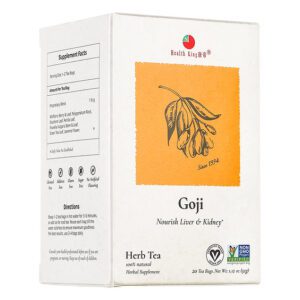 Goji Herb Tea – by Health King
Starting at $7.99
Add to CartSelect options
This product has multiple variants. The options may be chosen on the product page
Goji Herb Tea – by Health King
Starting at $7.99
Add to CartSelect options
This product has multiple variants. The options may be chosen on the product page
TCM-Inspired Spring Recipe: Salmon, Asparagus, and Goji Berry Salad
Spring is the time to enjoy warm salads, like this one that makes good use of the spring veggie, asparagus. Combining it with cooling and nourishing salmon and goji berries (which support the Liver system) makes the perfect light spring dinner. Pair with a room temperature glass of Goji tea.
Eating Well in Summer
Summer is a season of high energy and heat. To balance the external warmth and maintain internal balance, it’s time to focus on cooling and hydrating foods. These foods help keep the body cool and prevent overheating, which can lead to irritability and dehydration.
- Fruits: Summer fruits like watermelon, strawberries, and peaches are not only refreshing but also hydrating. Watermelon is particularly good for cooling down the body, thanks to its high water content. Strawberries and peaches provide a sweet, juicy way to stay hydrated and enjoy the season’s bounty.
- Vegetables: Crisp, water-rich vegetables like cucumber, zucchini, and tomatoes are perfect for summer. Cucumbers are cooling and can help reduce heat in the body. Zucchini is light and easy to digest, while tomatoes, with their slightly sour taste, help balance the body’s heat.
- Slightly Bitter Foods: Incorporating slightly bitter foods such as lettuce, dandelion greens, and bitter melon can help clear heat and detoxify the body. Lettuce is light and hydrating, dandelion greens support liver function, and bitter melon is known for its cooling and detoxifying properties.
TCM-Inspired Summer Recipe: Strawberry Daquiri Mocktail with Chinese Herbal Soup and Broth Mix For Detoxification or “Yeet Hay”
Cool down with a strawberry daquiri mocktail that supports the heart and hydration! To get even better health benefits, replace the 60ml of non-alcohol rum with the same amount of brewed Root + Spring Broth for Detoxificaton. This herbal concoction helps support your body’s balance in summer, relieving inflammation and excess heat.
Eating Well in Late Summer
During late summer, the Earth season, the Spleen and Stomach are the primary organs to focus on. This period is about transition and stability, preparing the body for the cooler months ahead. Sweet and neutral foods that are easy to digest are ideal for supporting these organs.
- Grains: Grains like rice, millet, and barley are gentle on the digestive system and provide a stable source of energy. Rice is particularly balancing and easy to digest, making it a staple in many soothing recipes.
- Root Vegetables: Carrots, sweet potatoes, and squash are nourishing and grounding. These vegetables are rich in vitamins and minerals, and their natural sweetness supports the Spleen.
- Legumes: Lentils, chickpeas, and beans are excellent sources of protein and fiber, which support healthy digestion and provide sustained energy. Lentils are quick to cook and versatile, chickpeas can be made into hummus or added to salads, and beans are great in soups and stews.
TCM-Inspired Late Summer Recipe: Mung Bean Soup with Chinese Herbal Soup and Broth Mix For Revitalization
This light soup is perfect for late summer, the transition from summer to fall. It’s a very light soup, using ingredients like mung bean, celery, and lemon that clear heat. But, the gentle warmth of the soup helps transition the body to the cooler temperatures coming with the Yin months ahead.
Using the Root + Spring Herbal Soup and Broth Mix for Revitalization as the liquid in the soup further enhances the healing properties. THis mix contains sea coconut, a common ingredient in summer herbal soups because it nourishes the dry heat in the lungs so well. It also uses bitter almond and dried Asian pear to tonify the Lungs and metal element to prepare your body for fall.
Eating Well in Fall
Autumn is associated with the Lungs and Large Intestine. It is a time of harvest and preparation for the colder months, and the focus should be on moistening and slightly warming foods to counteract the dryness of the season.
- Fruits: Pears, apples, and persimmons are all excellent choices in the fall. Pears are particularly good for moistening the lungs, while apples provide fiber and hydration. Persimmons offer a sweet treat that is also nourishing and moistening.
- Vegetables: White radish, turnips, and mushrooms are grounding and support respiratory health. White radish is great for lung health, turnips provide warmth and nourishment, and mushrooms are known for their immune-boosting properties.
- Warming Spices: Adding spices like ginger, cinnamon, and cloves can help warm the body and improve circulation. Ginger is great for digestion and adding warmth, cinnamon helps balance blood sugar levels, and cloves can boost immunity.
TCM-Inspired Fall Recipe: Chinese Herbal Chicken Soup with Chinese Herbal Soup and Broth Mix For Health and Immunity
Nothing beats the fall sniffles like a warm chicken soup. This recipe contains tons of healthy autumn ingredients plus a Chinese herbal broth designed to promote immunity. Eating more soups in fall not only helps your body stay warm and adapt to colder weather, but they also hydrate your digestive system and Lungs.
Eating Well in Winter
Winter, governed by the Kidneys and Bladder, is a time for conservation and warmth. Emphasizing warming and hearty foods helps support the body’s core energy and keeps the body warm during the cold months.
- Stews and Soups: Hearty stews and soups such as beef stew, chicken soup, and bone broth are perfect for winter. These meals are warming, nourishing, and easy to digest, providing sustained energy and warmth.
- Root Vegetables: Potatoes, carrots, and beets are grounding and provide essential nutrients. Potatoes are versatile and satisfying, carrots are sweet and nourishing, and beets support blood health and are warming.
- Salty Flavors: Foods with salty flavors like seaweed, miso soup, and soy sauce support kidney health and help retain necessary warmth. Seaweed is rich in minerals, miso soup provides beneficial probiotics, and soy sauce adds depth and umami to winter dishes.
TCM-Inspired Winter Recipe: Morroccan Lamb Stew with Ginseng Tea
Winter is all about warmth, and this recipe is sure to stoke your digestive fire. Lamb is one of the “warmest” meats by nature, and it’s paired with warming spices like cinnamon and ginger in this stew. Enjoy with a cup of warming Instant American Ginseng Tea or add a packet of this tea to your cooking broth to infuse even more Yang energy into your meal.
Eat Your Way to Vibrant Health in Any Season with TCM
Traditional Chinese Medicine isn’t just about acupuncture and herbal medicine. What and how we eat can significantly improve how balanced our bodies are, and therefore how healthy we feel.
The beauty of seasonal eating is that there is always something fresh and new to excite your palate and support your overall well-being. Take the opportunity to get creative in the kitchen and experiment with healing herbal soups, culinary herbs, and other TCM tips to support your body from head to belly to toe.
Shop our full collection of Chinese herbal soups, Chinese herbal teas, and more!


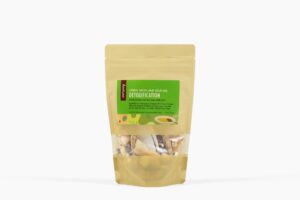 Chinese Herbal Soup and Broth Mix For Detoxification or “Yeet Hay” – by root + spring
Chinese Herbal Soup and Broth Mix For Detoxification or “Yeet Hay” – by root + spring
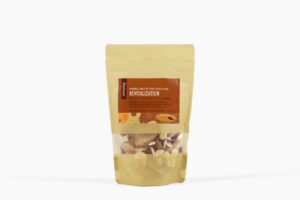 Chinese Herbal Soup and Broth Mix For Revitalization – by root + spring
Chinese Herbal Soup and Broth Mix For Revitalization – by root + spring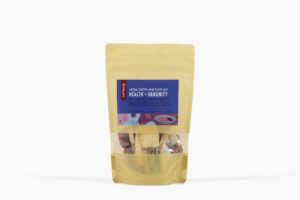 Chinese Herbal Soup and Broth Mix For Health and Immunity – by root + spring
Chinese Herbal Soup and Broth Mix For Health and Immunity – by root + spring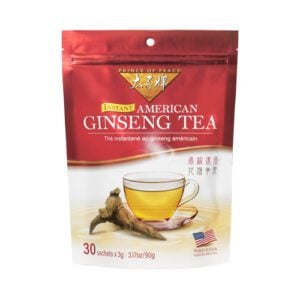 American Ginseng Instant Tea – by Prince of Peace
American Ginseng Instant Tea – by Prince of Peace